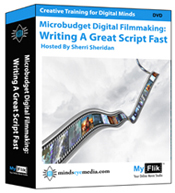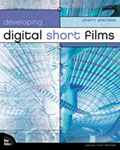
What went into Writing A Great Script Fast? Below is a list of resources I have used over the years to come up with my unique step-by-step story process. The best ideas and visual narrative techniques were harvested from these sources and folded into a simple step-by-step process for writing a great script or story fast: 1) Aristotle's Poetics 2) The Art Of Dramatic Writing by Lajos Egri 3) Writing Screenplays That Sell by Michael Hauge 4) Creating Unforgettable Characters by Linda Seger 5) Making a Good Script Great by Linda Seger 6) Story by Robert McKee 7) Hero With A Thousand Faces by Joseph Campbell 8) The Power of Myth by Joseph Campbell 9) Screenplay by Syd Field 10) The Artist's Way by Julia Cameron 11) The Writer's Journey by Christopher Vogler 12) All of Michael Dougan's screenwriting classes at FAF in SF 13) Computers As Theatre by Brenda Laurel 14) Adventures In The Screen Trade by William Goldman 15) The Illusion Of Life by Frank Thompson and Ollie Johnson 16) The Bare Bones Camera Book 17) Writing Short Films by Linda Cowgill 18) Crafting Short Screenplays That Connect by Johnson 19) Making A Good Writer Great by Linda Seger 20) 101 Things They Don't Teach You In Filmschool 21) In The Blink Of An Eye by Walter Murch 22) Deconstructing 100's of films and stories There were other sources too but these above are the main ones. A great deal of time was spent weeding out information that was interesting, but not very useful for writing scripts. I then went and deconstructed 100's of films, TV shows, animations, myths and stories to find out how they really worked. All of this information was then folded into the step-by-step process that has been used by 1000's of people and continually refined over the last 10 years through much research, trial and error. When writing a script or a novel it is very easy to get lost, run out of steam or find yourself with a great idea that is missing something you cannot quite put your finger on but can feel it lacking. By going through this story building process you will fill out your idea in layers that play together like instruments in an orchestra. This step-by-step story engine process allows you try out 1000's of basic storytelling techniques at least once, while weaving together a great original tale. And the best part is that the next time you go to think up another story idea, you will remember many of the step-by-step techniques to help you craft great ideas fast for the rest of your life. Think of this workshop as a universal storytelling blueprint engine. You can throw any idea at it and walk away with a brilliant script idea in about 20 hours. Now how fun is this creative possibility if you are a writer or filmmaker?
|
| |


